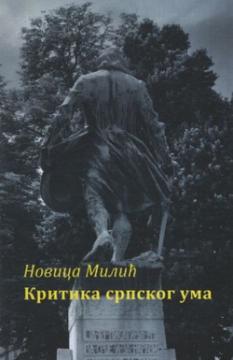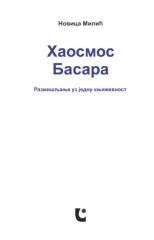
Kritika srpskog uma
Der Ausgangspunkt des Buches ist, dass die serbische Aufklärung nicht nur später als ihr Europafeldzug im 18. Jahrhundert aufholte, sondern sich ihr auch widersetzte, als sie sie einholte. Auf dem Balkan verlief die Geschichte unterschiedlich, sie hatte u
Einerseits analysiert Milić die Motive von Kants Kritik und zeigt, dass „Kritik“ bei Kant „Rechtfertigung“ bedeutet, also unter welchen Bedingungen Vernunft und Verstand legitim eingesetzt werden. Illegitim ist beispielsweise der Einsatz des Geistes, der seine eigenen Grenzen nicht kennt, wie etwa im Holocaust, als die Nazis versuchten, die Vernichtung der Juden mit (falschen) rationalen Argumenten zu rechtfertigen. Wo also der Geist nicht in der Lage ist, sich selbst Grenzen zu erkennen und zu setzen, um sich zu etablieren, wo der Geist die Gesetze (Verfassungen), die er zum Wohle der gesamten Gemeinschaft aufgestellt hat, nicht anerkennt, folgt unweigerlich eine Katastrophe. Andererseits zeigt Milić in der Analyse der Geschichte Serbiens, was in Serbien zu einer Zeit geschah, als in Europa die Speere für die Herrschaft der Vernunft (des Gesetzes) gebrochen wurden, das heißt, als sich die Ideen der Aufklärung allen Hindernissen zum Trotz stabilisierten. Milićs Geschichtsanalyse verläuft jedoch nicht in großen Wellen, sondern konzentriert sich auf wichtige Träger moderner Ideen (wie Dositej Obradović oder Božo Grujović), also auf die schärfsten Gegner von Modernisierungsprojekten (wie Nikolaj Velimirović), um in kleinen Schritten zu zeigen, warum Serbien die Ideen der Aufklärung nie akzeptierte, warum es von der europäischen Spur abkam und auf historischen Nebenpfaden blieb. Mit anderen Worten: Serbien hat es in seiner Geschichte nie geschafft, sich Kritik – im wahrsten Sinne des Wortes – zu eigen zu machen oder sie als notwendige Voraussetzung für ein gesundes Zusammenleben zu institutionalisieren.
One copy is available




